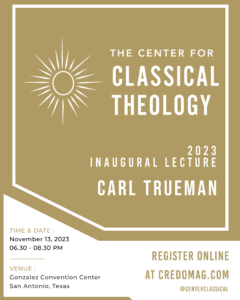
A Lesson on Wisdom and Folly: An Ecclesiastes Meditation, Part I
I t is no secret that Ecclesiastes occupies a place in the biblical genre group we call wisdom literature. So, in some sense, we know what to do with this book. We go to it in order to find wisdom. But this does not mean that its instructions are straightforward. Often, it takes wisdom to get the wisdom contained in Ecclesiastes.
t is no secret that Ecclesiastes occupies a place in the biblical genre group we call wisdom literature. So, in some sense, we know what to do with this book. We go to it in order to find wisdom. But this does not mean that its instructions are straightforward. Often, it takes wisdom to get the wisdom contained in Ecclesiastes.
One of my favorite chapters in this book (and one which encapsulates this enigmatic nature of its wisdom) is chapter 10. In it we see that one of the key distinctions between worldly wisdom and heavenly wisdom comes down to this central concept: pride vs. humility. This distinction is hinted at all throughout the Proverbs when we learn how the “fear of the Lord is the beginning of wisdom.” The one who fears the Lord does not fear others. The one who worships the Lord does not worship the praise of others, the strength of arms, or the prestige of wisdom, wealth, and pleasure. The one who fears the Lord isn’t frantically acting out of a reactionary and prideful sense of self-advancement or self-protection. The one who fears the Lord is content with being forgotten by man, so long as he is remembered by God. The path out of folly and into wisdom, then, is a true and God-given humility. Solomon illustrates this in Ecclesiastes both positively, and negatively. That is, not only does he commend humble wisdom, he also calls attention to the tragedy of prideful folly.
The Self-Destruction of Foolish Actions
“He who digs a pit will fall into it, and a serpent will bite him who breaks through a wall. He who quarries stones is hurt by them, and he who splits logs is endangered by them. If the iron is blunt, and one does not sharpen the edge, he must use more strength, but wisdom helps one to succeed. If the serpent bites before it is charmed, there is no advantage to the charmer” (Ecclesiastes 10:8-11)
Here, Solomon paints a vivid picture of the self-destructive nature of folly. Picture the stubborn and prideful person who despises instruction and recklessly acts to his own hurt. This is the person who digs a pit carelessly, for someone else, and then falls into it himself (a favorite illustration for Solomon). This is the guy doing demolition on a snake-infested wall heedless of the words of caution given by the owner. This is the guy who recklessly quarries stones and splits logs without using the proper protection or protocol. This is the guy who is working away with all his might, trying to cut down a tree with a dull axe, unwilling to heed the counsel of another who instructs him to sharpen the blade first. He can’t be bothered with the counsel of others because he is so pridefully self-assured that he knows what he’s doing.The path out of folly and into wisdom is a true and God-given humility. Click To Tweet
We can certainly think of other examples. One classic example used to be the husband who refused to ask for directions. And while GPS and smartphones have rendered this particular illustration irrelevant, the problem of folly is not resolved by technology. How many relational bridges have been burned because men and women are too pridefully stubborn to humble themselves and apologize? Think of the husband who refuses to call the electrician because he’s so confident he can fix the problem himself. Think of the wife who stubbornly refuses to heed the counsel of her husband on how to discipline the kids because she is so confident she knows what’s right. Think of the child who refuses to let his mom show him how to tie his shoe, tries to do it himself, and trips a few minutes later. The thing we really need to recognize here is that this kind of stubborn pride is not a personality quirk. It is folly.
And this is as good a place as any to remind my fellow parents of this central responsibility: we are to discipline and disciple the folly out of our children. They are born fools, and we are called to make them wise. The two-year-old’s inability to say “sorry” (or its equivalent) and practice self-control may not seem so bad right now, but when he’s a thirty-two-year-old, it can wreck a home and destroy lives. The puritan pastor Ralph Venning was right when he said, “Sin grows up faster than men do; they are old in sin when still young in years.” “Foolishness is bound up in the heart of a child, but the rod of discipline drives it far from him” (Proverbs 22:15). This is not to say that parents should expect perfection, of course, but we must remember that no one is born wise. The wisest among us are all fools who were made wise. The parent’s rod of discipline that drives folly out of the heart of a child is both corrective and instructional. As father and mother strive towards wisdom, they must invite their children to strive together with them (a father can’t ask his son to do what he won’t model for him). Parents also do this by showing their children what repentance looks like when they stray from that path, and then lovingly correcting their children when their children strive from it. But in any case, you can be sure that wisdom will never come automatically.
So, verses 8-11 illustrate for the self-destructive tendency of folly. Prideful, stubborn, foolishness is ultimately self-destruction. All the illustrations Solomon gives there are foolish actions (i.e., being reckless with snakes, stone, logs, using a blunt axe, etc.). But in verses 12-15, Solomon shows us that this principle applies also to words.
The Self-Destruction of Foolish Words
“The words of a wise man’s mouth win him favor, but the lips of a fool consume him. The beginning of the words of his mouth is foolishness, and the end of his talk is evil madness. A fool multiplies words, though no man knows what is to be, and who can tell him what will be after him? The toil of a fool wearies him, for he does not know the way to the city.” (Ecclesiastes 10:12-15)
Words spoken from wisdom are a precious thing. They are a treasure to both their hearers and their speaker. But “the lips of the fool consume him.” This is the person who cannot stop talking, and with the accumulation of words, hangs himself.The wisest among us are all fools who were made wise. Click To Tweet
Picture this scene if you will: you’re in an argument. You are hurt and so you respond by saying something wrong, incoherent, and insulting. You know it as soon as you say it: it was an inexcusable mistake. But you can’t simply own up to your folly and apologize, because that would insinuate that they were right, wouldn’t it? So, rather than doing this, you try to talk your way out of the conundrum you’ve found yourself in. You explain, and re-explain, and re-explain, and qualify, and dig your heels in, and say it stronger, and say it meaner, and somehow, by the end of the conversation what began as something small has grown into a massive, hairy beast. “A fool multiplies words, though no man knows what is to be, and who can tell him what will be after him? The toil of a fool wearies him, for he does not know the way to the city.” The only way out of the hole he dug for himself is humility, but he is a prideful fool and cannot humble himself, and therefore he will not find his way to “the city.”
I think we would be doing ourselves a tremendous disservice if we failed to apply these verses to two incredibly important areas of speech: social media, and gossip. When it comes to social media, it is safe to assume that the cesspool of these platforms has desensitized us more than we realize. What constitutes as acceptable, dignified speech in that space is totally different than in the lobby of a church building, or in someone’s home or at the office, etc. I have seen Christian pastors and leaders blatantly disregard the biblical qualification of elders to not be quarrelsome (2 Timothy 2:24). I have seen Christians share vile memes and posts, saying things online they would never say to their fellow church members. I have seen Christians and pastors and church leaders multiply self-aggrandizing and self-congratulating words that bespeak a self-obsession; a pure, undiluted attempt to be praised or pitied (which is the same thing, by the way). If we are grading on a curve, comparing ourselves to others online, we will excuse our presence as tame. But our responsibility is to refuse to grade our speech on a curve, and instead weigh it against Scripture, which contains the solemn words of our Lord Jesus Christ: “I tell you, on the day of judgment people will give account for every careless word they speak.”When it comes to social media, it is safe to assume that the cesspool of these platforms has desensitized us more than we realize. Click To Tweet
We often think about our online chatter as an off-the-cuff conversation, and are free and undiscerning with how we talk there. Instead, we need to view our online speech more like published words. Now, of course not all of us aspire to writing books, but even if you don’t, you can imagine the scrutiny required to publish something with your name on it. You have to ask, “Am I prepared to be quoted in this? Have I said it the way I want to? Can I petition God’s blessing for this thing?”
This passage speaks loudly of foolish online chatter, but it speaks just as loudly to gossip. Allow me to call your attention to that dark delight you have in discussing others’ downfall. I know you don’t want to admit that it’s there, but it is. Much of the enjoyment we all received from listening to Christianity Today’s podcast, “The Rise and Fall of Mars Hill,” can be chalked up to this (notice that curl in the lip you have to suppress when talking about someone else’s failure). It’s there, and it’s an evil hunger that is fed with foolish words. It is a sin just as severe as any other, especially within the church, because it functions like muscular dystrophy—it eats away at the muscles in the body and makes it weak and vulnerable. As a rule of thumb, if you are not sure if a conversation is verging into gossip, err on the side of caution and assume it is, and then be the awkward person and confess and steer the conversation away. Turn the lights on. Pump the breaks. “I’m sorry for any way I’ve fed into this, but it seems like our conversation is verging into gossip and I think we should stop talking about it.”

